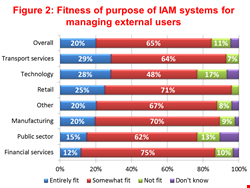In 2014, Quocirca published a research report looking at the value European organizations were deriving from operational intelligence. Now, in June 2015, there is a sequel: Masters of Machines II. The new report is freely available to download and Quocirca will be presenting the results at a webinar on 16 July (free registration here).
The research looks at the changing priorities of European IT managers, in particular how cost-related concerns have dropped away with improving economic conditions in most European countries, whilst concerns around customer experience, data chaos, inflexible IT monitoring and, in particular, IT security, have all risen.
The research goes on to look at the effectiveness of operational intelligence in addressing some of these concerns as well as two other issues. The first of these is increasing IT complexity as more and more cloud-based resources are used to supplement in-house IT, thereby creating hybridized platforms. Second is the role operational intelligence plays in supporting commercial activities, especially the cross-channel customer experience: the mixed use of websites, mobile apps, social media, email, voice and more by consumers to communicate with product and service suppliers.
Effective operational intelligence requires a comprehensive collection of machine data and tools that are capable of consolidating, processing and analyzing it. The research looks at the ability European organizations have to do all this through the use of an operational intelligence index, which was used in both the 2014 and 2015 reports. The index covers 12 capabilities, from the most basic (“capture, store, and search machine data”) to the most advanced (“provide the business views from machine data analysis that drive real-time decision-making and innovation”).
In nearly all areas there is a strong positive correlation between operational intelligence capability and the ability to address various IT and commercial management challenges. The exception is IT security, where concerns increase with better operational intelligence. The conclusion here is dark: only once deep enough insight is gained do organizations really see the scale of the security challenge. Some with little insight may exist in a state of blissful ignorance. However, that will not last. It is better to know the movements of your foes, than have them emerge at an unexpected time and place out of the fog of ignorance.

